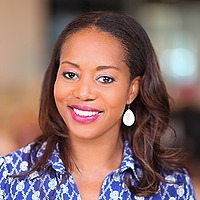As part of the Meet the Controller/CFO series, the Controllers Council recently interviewed Shannon Nash, CFO at Wing, an Alphabet Company.
Shannon has a distinguished career most recently as CFO at Reputation, and prior to that she was a CAO as well at Reputation. Shannon is a board member at NYSE listed UserTesting and a board advisor for the Controllers Council. Her education background is equally distinguished with a BS accounting and a JD Law from the University of Virginia and CPAs from both the states of California and Virginia. And I understand she’s a recovering attorney with licensure in both DC and Virginia.
Following are some questions from moderator Neil Brown, and answers from Shannon Nash. If you are interested in learning more, view the full interview video archive here.
Q: What inspired you to pursue a career in corporate accounting finance?
A: Well, I’ll start with the fact that I always liked finance and numbers. Even if you think about tax law and going into that type of law, I was always leaning towards that area of the law that dealt a lot with numbers and understanding a lot about how business works. As you mentioned before, I went to the University of Virginia, both the undergrad and McIntire School of Commerce and the law school there, and just got a lot of good training and mentorship from professors there. And I knew that I could kind of take both of those backgrounds and turn it into some type of business profession. I just didn’t know exactly how that would work for me. I went and I practiced law, as you said, for number of years. I worked at K&L Gates and Cooley and really got to do a lot of transactional legal work in addition to tax work.
So, at a certain point I hit a fork in the road and realized that I just wanted to be closer to the business. I wanted to understand business operations. I wanted to understand how to run a P&L. And so really the best way with my background to do that was to kind of go the finance track.
Q: You’re very active with boards and member associations. How does this help or support your career development?
A: When you’re on a board and especially if you get a chance to be on a board of a public company, your role is not to be an operator. Your role isn’t to sit on the management team. Your role is to help the CEO and the management team see around corners, to really think about where is the best new market for us to expand into? What is the best new product for us to invest money in? How much should we be investing in R&D versus sales and marketing? That is your role, to be super strategic. And it really helps you develop a completely different muscle in how you approach your business. And then you take that same muscle back to your own business and it helps you in a way to be able to structure how you communicate, not only with your peers, but with your own board.
Q: What’s it like to work for small startups versus large corporations since you’ve been in both?
A: I think with a startup or a smaller organization, I’m going to define a smaller organization with one that’s under, let’s say 1000 people. You often wear many hats as I had talked about before. And you really get exposure to a lot of the different areas of the business in a way that at a larger organization that is matured and has more processes, more internal controls put in place, you don’t get as much exposure to the overall business. You get exposure to your area and you’re more likely to be a subject matter expert at that company. So, the depth of what you’re working on is much richer.
You go to a bigger company and there will be a team of people divided up by the type of taxes that they work on. So, there may be a team of people that only do sales and use tax. And on that sales and use tax team, you may have one or two people who are deep and can tell you, hey, in these five states we have relationships, and we work with these state agencies, and we know that for example, sales of SaaS products are taxable. And they know it cold because they do it day in and day out and they get good at that.
Q: What have been some of the most significant keys to your success?
A: I get asked that question a lot and I always start with the keys to success really start with supporters. No one in the C-suite made it there by themselves just because they were so good and so much smarter and work so much harder. I think those things are true about a lot of people who do work very well in their career, but they’ve all had somebody who supported them. Could be in the form of a mentor, but I think a mentorship is just kind of a tip of the iceberg. It’s really somebody who was invested in their career, which is what I call a supporter, who really helped them navigate their career, their company, their opportunities. They were the sounding board; they were the ones that put them up for various new roles and things of that nature.
It does start about really making sure you can find someone to support you. So that for me was integral to my success. One of my supporters is a gentleman by the name of Larry Bailey. He’s a CPA, very pioneering, one of the first African American partners. He was at KPMG Peat Marwick back in the 70s and then Price Waterhouse. And so, he was somebody that A, I got to see somebody that looked like me achieving this in accounting, but B, was also very invested in my career and made sure and helped me think about new job opportunities, talked about, and helped me get speaking engagements earlier in my career and exposure and things of that nature. And really showed me how many opportunities I could have with my background. So, I owe a lot to him.
And the other is not an accounting or finance professional at all. It’s a woman by the name of Debbie Allen. She’s a three-time Emmy award-winning director, actress, choreographer, producer. And I had left a really big public company and I went to run her organization and she believed in me, and she really helped me understand how to be a leader and how to operate and organize and get people to really support your vision and then execute. She helped me really understand the value of the biggest asset you have as a company is your people. And just seeing how she treated everybody from, I don’t care if it was the janitor to the star of the show, she treated everybody with respect and really was able to get people to workday and night and still want to give it their all. And I knew, I was like, I need to model that. She’s got something.
And so, she was also just another supporter who again, I had never done that role before, and she just believed I could do it. And so, I would say I owe the two of them a lot in my career. So, a big part of, to me about keys of success is finding those supporters in your life.
Q: What advice would you give to others that seek a controllership, CAO, or CFO career?
A: Going back to the supporters, it does start about get a supporter, but I like to call it get your own personal board of directors. And that board of directors is, it includes your supporters, but it also includes your peers, it includes finding that core group of five, seven, whatever, 10 people that really help you navigate your career, really help you evaluate opportunities. Everybody needs their own personal board of directors. And so that’s probably one of my number one thing to suggest. Other things that I think are super helpful, especially going into controllership and CFO roles, technical skills are always going to remain critical. And quite frankly, people are going to assume you have the technical skills, so you don’t necessarily get brownie points for being technically proficient. What is going to set you apart is what I guess people like to call the soft skills, but it’s about being a good communicator.
So much of the job of a controller and the CFO is about communicating, communicating across functions, communicating with the CFO, communicating with the CEO, communicating with the board. And so those are skills that they’re not taught in school. School teaches you technical skills, they don’t teach you those soft skills. And you have to make sure you’re going out of your way to develop those skills and get really good at them, especially the higher you go up in the corporate ladder. And that also brings me to my other tip, which is invest in yourself. I told you I’m a lifelong learner. I believe in always investing in yourself. I tell my team, no one’s going to care more about your career than you do. So, if you’re not willing to invest in how you can better your skills, your employer is not going to be willing to either.
You need to be the first person willing in bringing the plan and then the employer supports you. And so that has worked well for me as I’ve gotten increasingly roles of more responsibility and I’m a big supporter of my teams in terms of investing in themselves with organizations like Controllers Council for example. I’m a big proponent of always investing in yourself and it has paid dividends for me.
So those would be the things I would tell somebody who’s looking, and those are things they can control. Right. Those are things that they can work on. You can work on building your own board, you can work on investing in yourself. This is stuff you own, that whatever job you go to should not impact your ability to do those things. So that would be my biggest kind of takeaways for folks because all the other stuff they can find everywhere else, they can find the technical stuff, they can find the industry stuff, but it’s this stuff that somebody told me earlier on my career, especially the soft skills that I think really helped make the difference for me.
To learn more, view the full discussion here.




